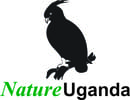AfricElle - Women as champions for agroforestry, biodiversity and nature conservation around protected areas in Africa
AfricElle prioritises women as champions for agroforestry, biodiversity and nature conservation around protected areas in Africa.
Private German sponsor: Naturschutzbund Deutschland e.V.
Project duration: 01.11.2024 – 31.10.2027
Rural Africa continues to be characterised by poverty due to low household incomes and lack of development and sustainable income opportunities. Steady and rapid population growth with increasing pressure to utilise land and the effects of climate change are exacerbating the situation. Women are particularly affected by this. They often have less access to economic resources, education and healthcare, which increases inequality and their economic dependency. They also bear the main burden of unpaid domestic work as well as agricultural labour, which is negatively exacerbated by low yields and crop failures. Traditional gender roles and patriarchal structures restrict their social and economic freedoms, making it a challenge for them to benefit from development programmes. Climate change and its consequences affect the availability of natural resources, which further jeopardises women’s livelihoods.
All local project partners, including NABU, are partners of the BirdLife International network and represent similar interests in species, habitat and nature conservation, with a particular focus on bird conservation. All local organisations were partners in the BMZ-funded predecessor project AfriEvolve.
NU works in the Albertine Rift (Nyamuriro Wetlands, Lake Bunyonyi Wetlands, Echuya Forest, Katsyoha Kitomi Forest) and Western Uganda (Kabale, Rubanda, Kisoro, Rubirizi).
Project area in Uganda – the Echuya Forest Reserve, Uganda
Echuya Central Forest Reserve: This is a highland forest area at an altitude of 2,570 metres in the Albertine Rift in western Uganda, covering approximately 4,000 hectares. Echuya is located at the junction of the districts of Kisoro and Rubanda. Thanks to various measures taken by different partners over the last few decades, the area is now in a good state of conservation, but needs to be protected. The pressure from the growing population, which already lives in one of the regions with the highest population density and which is one of the poorest parts of Uganda in terms of agriculture, is constantly increasing. On the steep slopes of the Kigezi highlands, which border directly on the Forest Reserve, people primarily use areas of between two and five hectares for subsistence and to produce small quantities of potatoes, climbing beans, onions, avocado, passion fruit and tree tomatoes for sale at local markets. However, these agricultural areas are degraded and increasingly infertile due to heavy overuse. The already noticeable effects of climate change are exacerbating these impacts. Around 755,000 people, including the indigenous Batwa, live in 3 districts in the project area around the Echuya Forest Reserve. They have an agreement with the government on access and sustainable use of the forest reserve.
In order to maintain the good condition of the Echuya Forest Reserve and to increase the acceptance of the neighbouring population through their active involvement in the management measures and to further develop their knowledge and skills, the project supports community-based forest monitoring and management by recognised community-based forest management groups (CFMA) in cooperation with the National Forest Authority (NFA). The transfer of responsibility for forest management and sustainable implementation, especially by women organised in CFMA sub-groups, including a better understanding of the importance of forest ecosystem services for local communities, is intended to support strong ownership.
The planned activities are classified under three (3) components
- Component 1: Promotion of women’s empowerment
- Component 2: Strengthening green, climate resilient value chains
- Component 3; Safeguarding ecosystem services

